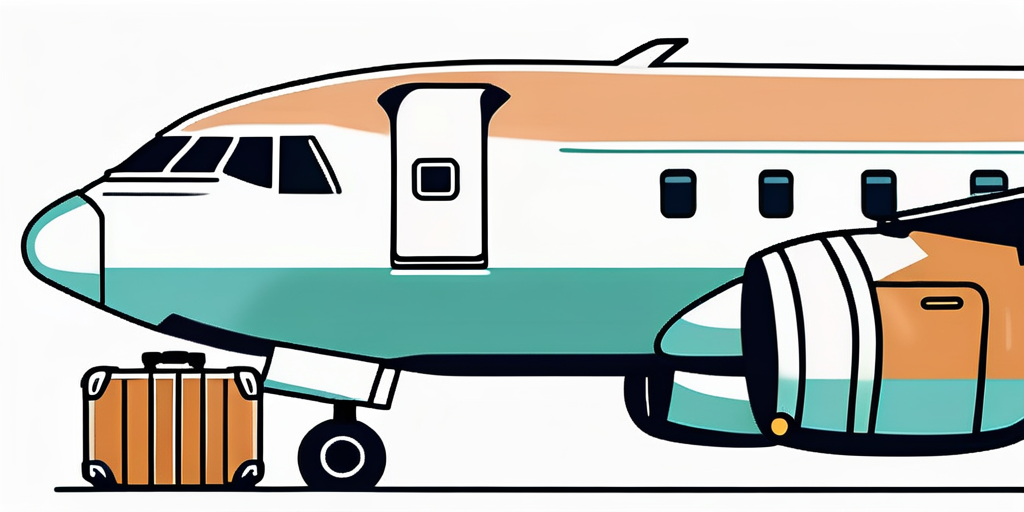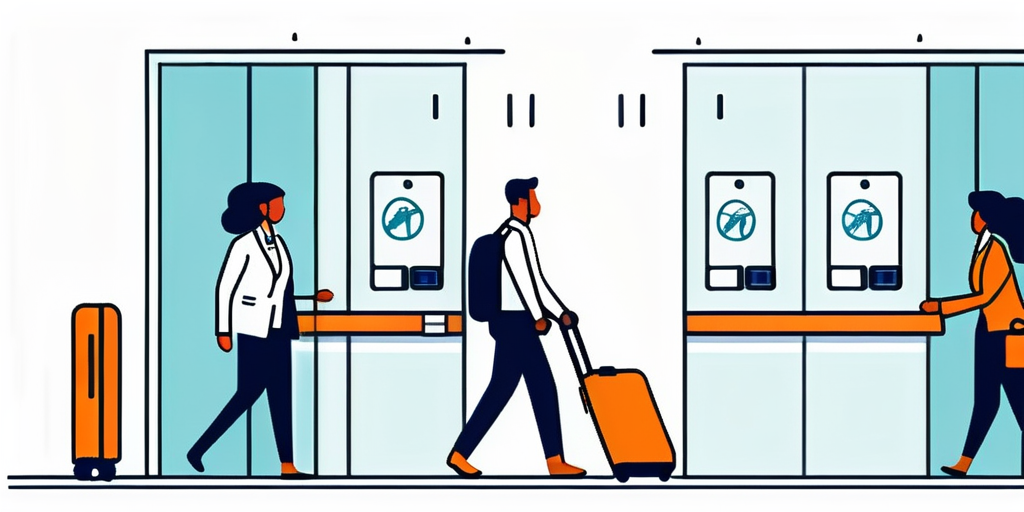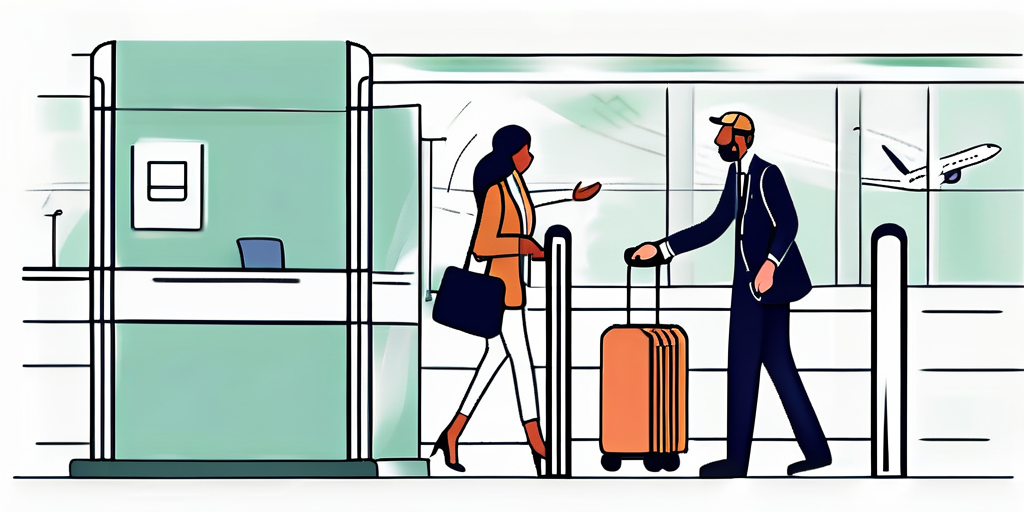Passenger Rights Denied Boarding: What You Need to Know
Explore passenger rights regarding denied boarding. Learn about entitlements, compensation, and how to assert your rights effectively as a traveler.
In today's fast-paced world, air travel has become an integral part of our lives. Millions of passengers take to the skies every day, hoping for a smooth and hassle-free journey. However, there are times when unforeseen circumstances can disrupt our plans, leading to denied boarding. Understanding your rights as a passenger is crucial in such situations, so let's dive in and explore what you need to know.
Understanding Passenger Rights
When it comes to denied boarding, it's essential to have a clear understanding of your rights. Knowing what you are entitled to can help you navigate through the situation and seek appropriate compensation. Let's start with the basics.
Passenger rights are a crucial aspect of air travel, providing protection and recourse for individuals facing disruptions such as denied boarding or flight cancellations. Understanding these rights empowers passengers to advocate for themselves and seek redress when necessary.
The Basics of Passenger Rights
Passenger rights are a set of rules and regulations designed to protect individuals who are denied boarding or face other inconveniences during air travel. These rights vary depending on the country and the airline you are flying with, so it's always advisable to familiarize yourself with the specific regulations relevant to your journey.
One fundamental aspect of passenger rights is the right to compensation in the event of denied boarding or significant flight delays. This compensation can vary based on the length of the delay and the distance of the flight, with specific guidelines outlined in the legal framework governing air passenger rights.
Legal Framework Governing Passenger Rights
Passenger rights are not arbitrary; they are enforced and regulated by legal frameworks put in place by aviation authorities. These frameworks establish the rights and responsibilities of passengers and airlines, ensuring that all parties are treated fairly. Knowing the legal framework governing passenger rights can help you assert your rights effectively.
Furthermore, the legal framework governing passenger rights often includes provisions for passenger safety, accessibility, and non-discrimination. These regulations aim to create a standard of service and care that airlines must adhere to, promoting a more transparent and passenger-centric aviation industry.
Reasons for Denied Boarding
Denied boarding can happen due to various reasons. Let's take a look at some of the common causes that lead to this unfortunate situation.
 Understanding the reasons behind denied boarding can help passengers navigate through such situations with more clarity and awareness.
Understanding the reasons behind denied boarding can help passengers navigate through such situations with more clarity and awareness.
Overbooking Issues
One of the primary reasons for denied boarding is overbooking. Airlines often sell more tickets than there are available seats, banking on the fact that some passengers might not show up. However, when everyone shows up, the airline may have to deny boarding to some passengers. This is where your rights as a passenger come into play.
It's important for passengers to know their rights in case they are denied boarding due to overbooking. Airlines are required to compensate passengers in such situations, and understanding the compensation policies can help passengers advocate for themselves.
Security and Safety Concerns
In situations where security or safety concerns arise, airlines have the authority to deny boarding in order to protect both passengers and crew members. While these situations are rare, it's important to be aware that they can occur. In such cases, your rights as a passenger may be slightly different, so it's crucial to understand the specific protocols followed in such scenarios.
Passenger safety is the top priority for airlines, and any decisions made regarding denied boarding due to security or safety concerns are aimed at ensuring the well-being of everyone on board. Understanding the importance of these protocols can help passengers appreciate the thorough measures taken by airlines to uphold safety standards.
Compensation for Denied Boarding
If you find yourself in a situation where you are denied boarding, you may be eligible for compensation. Let's explore the possible compensation options available.
 Denied boarding can be a frustrating experience, but it's important to know your rights as a passenger. In cases where you are denied boarding due to overbooking or other non-security-related reasons, you may be entitled to compensation. This compensation is designed to help offset the inconvenience and potential financial loss caused by being unable to board your flight.
Denied boarding can be a frustrating experience, but it's important to know your rights as a passenger. In cases where you are denied boarding due to overbooking or other non-security-related reasons, you may be entitled to compensation. This compensation is designed to help offset the inconvenience and potential financial loss caused by being unable to board your flight.
Monetary Reimbursement
When you experience denied boarding due to overbooking or other non-security-related reasons, you may be entitled to monetary reimbursement. The amount of compensation can vary depending on the specific circumstances and the jurisdiction you are in. It's important to note that each country has its own guidelines regarding compensation amounts, so familiarize yourself with the regulations applicable to your situation.
Monetary reimbursement typically covers expenses such as rebooking fees, transportation to and from the airport, accommodation costs if an overnight stay is required, and any other reasonable expenses incurred as a result of being denied boarding. It's crucial to keep all receipts and documentation related to these expenses to support your claim for compensation.
Alternative Travel Arrangements
In addition to monetary compensation, airlines may also be required to provide alternative travel arrangements to passengers who have been denied boarding. This can include booking you on the next available flight, rerouting your journey, or providing accommodation and meals if necessary. It's essential to be aware of these options and assert your right to alternative travel arrangements when applicable.
When seeking alternative travel arrangements, it's important to communicate clearly with airline staff and understand your rights. If you are unsure about the options available to you, don't hesitate to ask for clarification. Remember that airlines have a duty to assist passengers who have been denied boarding and should make every effort to minimize the disruption to your travel plans.
How to Assert Your Rights
When faced with denied boarding, it's crucial to assert your rights effectively. Here are some steps you can take to navigate the situation and seek appropriate compensation.
Denied boarding can be a frustrating experience, but knowing how to handle it can make a significant difference in the outcome. By staying informed and proactive, you can increase your chances of receiving fair treatment and compensation.
Steps to Take Immediately After Denied Boarding
First and foremost, remain calm and approach the airline staff at the boarding gate. Inquire about the reason for the denial and request a written explanation if possible. Additionally, document any interactions, take note of the time, and gather evidence such as photographs or witness statements that can support your case later on.
It's essential to be assertive yet respectful when dealing with airline personnel. By maintaining a professional demeanor and clearly stating your concerns, you are more likely to receive assistance and a satisfactory resolution to the situation.
If the denial is due to overbooking, ask the airline about the possibility of being placed on the next available flight or alternative travel arrangements. Familiarize yourself with the compensation guidelines applicable to your situation and request the appropriate compensation if you are eligible.
Understanding your rights as a passenger is key to advocating for yourself effectively. By being aware of the regulations and policies that govern air travel, you can make informed decisions and assert your entitlements with confidence.
Seeking Legal Assistance
If you believe that your rights as a passenger have been violated and the airline is not providing a satisfactory resolution, it may be necessary to seek legal assistance. Contacting a lawyer who specializes in aviation law can help you understand your options and ensure that your rights are protected.
Legal experts in aviation law are well-versed in the complexities of air travel regulations and can provide valuable guidance on how to proceed with your case. By enlisting the support of a knowledgeable attorney, you can pursue appropriate remedies and seek justice for any infringements on your rights as a passenger.
Preventing Future Boarding Denials
While denied boarding is an unfortunate situation, there are steps you can take to minimize the chances of encountering this issue. Let's explore some preventive measures.

Tips for a Smooth Check-In Process
Arriving early at the airport and completing the check-in process as soon as possible can help reduce the likelihood of being denied boarding. Ensure that you have all the necessary travel documents and comply with any specific requirements set by the airline or immigration authorities.
Moreover, it's advisable to double-check your baggage allowance and weight restrictions to avoid any last-minute surprises at the check-in counter. By adhering to the airline's guidelines on luggage, you can streamline the check-in process and minimize the risk of complications that could lead to denied boarding.
Understanding Airline Policies
Familiarize yourself with the policies and guidelines of the airline you are flying with. Different airlines may have different rules regarding denied boarding and compensation, so being aware of these policies can empower you as a passenger.
Additionally, take note of the boarding priorities established by the airline. Understanding the criteria used to determine who gets bumped off a flight first can provide insights into how to secure your seat and avoid being involuntarily denied boarding.
In conclusion, understanding your rights as a passenger is crucial in the event of denied boarding. By knowing the basics of passenger rights, the reasons for denied boarding, the possible compensation options, and how to assert your rights effectively, you can navigate through this challenging situation with confidence. Remember to stay informed, assert your rights when necessary, and take proactive measures to prevent future boarding denials. Bon voyage!
Ready to Claim Your Compensation?
If you've experienced denied boarding, flight delays, or cancellations, ClaimCompass is here to help. We specialize in securing up to 600€ in compensation for air passengers under EU Regulation 261/2004. Our hassle-free process involves handling your claim from start to finish, including communication with airlines and legal proceedings if necessary. Use our compensation calculator to check your eligibility for free and find out how much you could be owed. With ClaimCompass, you only pay a fee if we successfully claim your compensation. Submit a claim today and let us advocate for your passenger rights.
